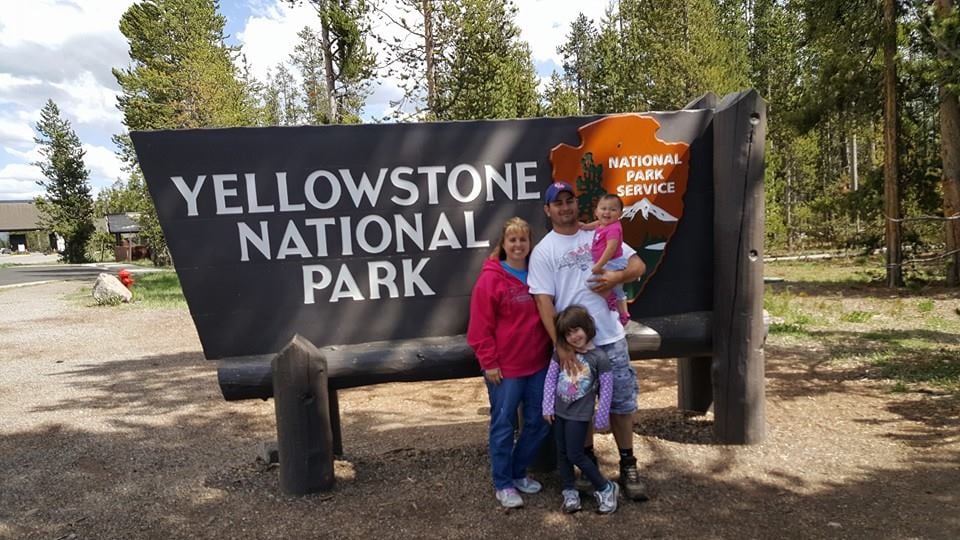The “Luke Jones Initiative” is an online petition started by Heather Jones, wife of the late Luke Jones, a firefighter and paramedic who was tragically killed by a Phoenix bouncer. The petition calls on state lawmakers to pass legislation demanding that Arizona create stricter laws and regulations pertaining to the hiring and training of bouncers. Electronically sign the petition to tell Arizona lawmakers that it is imperative that bouncers are properly qualified and trained.
Online Petition: Luke Jones Initiative
Luke Jones Initiative
The “Luke Jones Initiative” is an online petition started by Heather Jones, wife of the late Luke Jones, a firefighter and paramedic who was tragically killed by a Phoenix bouncer. The petition calls on state lawmakers to pass legislation demanding that Arizona create stricter laws and regulations pertaining to the hiring and training of bouncers. Electronically sign the petition to tell Arizona lawmakers that it is imperative that bouncers are properly qualified and trained.
Overview
On January 21, 2017, Daisy Mountain firefighter and paramedic Luke Jones lost his life at the hands of a bouncer — a bouncer who, like other bouncers in Arizona, was not regulated or subject to any Arizona hiring or training requirements. The bouncer was an MMA fighter, and Luke’s arm was immobilized after a recent elbow surgery.
Jones was 37 years old, a veteran, a 12-year firefighter, paramedic, a husband and a new father.

Petition Background
Arizona does not have any laws regarding the qualifications or training for a bouncer or doorman.Id. In Arizona, many bouncers have little or no experience regarding deescalation techniques, proper restraint procedures and when and how they may apply physical force. If an altercation arises, inexperienced or untrained bouncers will be forced to rely on their own common sense and physical street instincts.[1] This lack of training, combined with the unscreened and unrestricted hiring of an ultra-aggressive personality, may be deadly. Id.
In reality, the best bouncers do not bounce anyone—they manage people. Bouncers should be personable, mature, friendly, quick thinking, have the ability to speak with people without appearing threatening or intimidating, and most of all, be trained. Id.
To be effective, a bouncer should be trained in:
- Proper restraint protocol
- Criminal and civil laws relating to citizen’s arrest, legal use of force and self-defense
- Deescalation techniques
- Responsible service of alcohol
- Verbal communication with patrons
Id. As a general rule, a bouncer should never lay their hands on a patron, except in self-defense or for the purposes of taking a person into custody for an arrest. Id. Additionally, establishments should have a policy on when to use physical force and a daily report system to track and record daily altercations. Id.
The Luke Jones Initiative
Unfortunately, Luke Jones was not the first person to lose his life at the hands of an untrained bouncer. Countless other families, friends and communities have mourned the loss of their loved ones through similar unregulated violence.
A South Carolina bouncer was accused of beating David Lacz to death outside of a club.[2] Mark Girard Jr., from Oceanside, California, was killed when a bouncer knocked him down outside a club.[3] Sammy Pickel, from Colorado, was taken off life support and passed away after being put in a chokehold by bouncers at a local bar.[4] Danny Esquivel died in San Jose, California, from being punched by a bouncer outside a bar.[5] This is only a small example of the heartbreaking list of people that have died at the hands of untrained bouncers.
It is time to change the narrative and demand that Arizona require proper employment screening and training for bouncers.
Many countries, including Canada[1], Italy[2], New Zealand[3], Singapore[4], the United Kingdom[5], and the Republic of Ireland[6] require bouncers to undergo a background check and obtain certain training or licenses to work as security. Furthermore, states such as New York[7], California[8] and Louisiana[9], and cities such as Providence[10], Rhode Island, Greenville[11], North Carolina and Philadelphia[12], Pennsylvania require bouncers to have a criminal background check and to take a training course in order to receive a license, which qualifies them to be hired as a bouncer.
Conclusion
The Luke Jones Initiative is a necessary and preventative step that Arizona must take in order to safeguard its citizens from the unnecessary harms caused by untrained bouncers. The goal is to develop legislation that requires bouncers to receive a license, undergo a background check and complete training in order to be hired and remain employed.
[1] Chris E. McGoey, Security Expert Witness, http://www.crimedoctor.com/nightclub-security-3.htm.
[2] Caroline Balchunas, Abc4NEWS, Bouncer released on bond after being charged in strip club patron’s death, http://abcnews4.com/news/local/charleston-police-investigating-death-of-florida-man-outside-gentlemans-club.
[3] Samantha Tatro, 7SanDiego, Girlfriend of Man Killed by Bouncer Cries as She Listens to 911 Tape During Trial’s Opening Statements, http://www.nbcsandiego.com/news/local/Opening-Statements-Begin-for-Bouncer-Charged-in-Mans-Death-Outside-Bar-319010911.html.
[4] Fox31Denver, Man taken off life support after being placed in chokehold by bouncers, http://kdvr.com/2016/03/14/family-blames-bouncers-choke-hold-for-putting-man-on-life-support/.
[5] Robert Salonga, East Bay Times, Bouncer gets eight months in jail for punch that killed Palo Alto man at San Jose bar, http://www.eastbaytimes.com/2016/08/18/bouncer-gets-eight-months-in-jail-for-punch-that-killed-palo-alto-man-at-san-jose-bar/.
[6] Ontario Ministry of Community Safety & Correctional Services, http://www.mcscs.jus.gov.on.ca/english/TrainingEducation/MCSCS_train.html.
[7] Art. 1 comma 4 law 6 October 2009, from a) to g)
[8] Licenses & Certificates, justice.govt.nz, https://www.justice.govt.nz/tribunals/licences-certificates/pspla/.
[9] Private Security Industry Act, Chapter 250A, http://statutes.agc.gov.sg/aol/search/display/view.w3p;page=0;query=DocId%3A%224a539508-5c01-41e5-98b6-cc3f6281d989%22%20Status%3Ainforce%20Depth%3A0;rec=0.
[10] The Security Industry Authority, https://www.sia.homeoffice.gov.uk/Pages/home.aspx/NR/rdonlyres/725E43BE-2163-4E85-9151-6EAB15990BC1/0/sia_get_licensed.pdf.
[11] The Private Security Authority, http://www.psa.gov.ie/Website/psa/psa.nsf/agentvw?Openform&vw=psaLicensing.
[12] New York Security Guard Act, https://www.dos.ny.gov/licensing/lawbooks/PIBailWtchGuard.pdf.
[13] SB 194, ftp://www.leginfo.ca.gov/pub/05-06/bill/sen/sb_0151-0200/sb_194_bill_20051007_chaptered.html.
[14] Security Personnel Training, http://www.atc.rev.state.la.us/sec-personnel-page.php.
[15] http://www.providenceri.com/efile/73.
[16] Ordinance Number 09-98, http://www.greenvillenc.gov/home/showdocument?id=8351.
[17] Bill Number 110610, http://www.phila.gov/MDO/pdf/Bill_No_110610.pdf.
Locations
Lamber Goodnow Injury Lawyers
Phoenix, Arizona
602-ARIZONA (602-274-9662)
2394 E Camelback Rd #600
Phoenix, AZ 85016
Lamber Goodnow Injury Lawyers
Denver, Colorado
303-800-8888
1330 Logan St Suite B2,
Denver, CO 80203
Lamber Goodnow Injury Lawyers
Tucson, Arizona
520-477-7777
4023 E. Grant Rd Suite 101,
Tucson AZ 85712.

